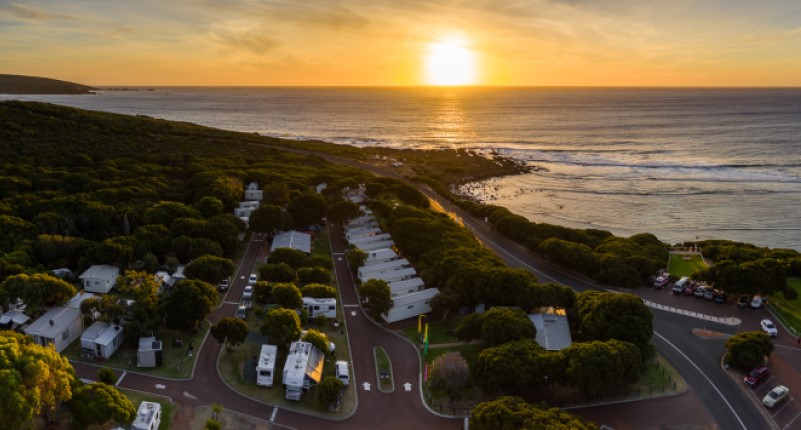- The four acquisition takes the tourism operators portfolio to 26, 21 of which are in Australia
- The company raised $300m in capital late last year
- One of the new assets represents the groups first foray into Victoria
Tasman Holiday Parks, which is undergoing a significant expansion, has settled four acquisitions so far in 2022 to the tune of $65 million, amid surging demand for Australian holiday assets.
The company already has another $120 million worth of holidays parks under contract or in advanced pipeline across Australia, with another NZ$30 million in New Zealand.
The four acquisitions have grown the overall portfolio to 26 properties, with 21 in Australia and balance in New Zealand.
The number of revenue-generating sites has also grown to over 4,000, putting the company in good stead towards achieving its target and doubling its size over the two years to the end of 2023.
The latest acquisitions include two major investments in WA – Yallingup Beach and Caves holiday parks – in a move the company says positions itself for the long-awaited WA border reopening.

Tasman also acquired the award winning BIG4 Ballina Headlands Holiday Park, which has been tightly held by the same family for 25 years.
Nikki Milne, Tasman Holiday Parks, is looking forward to continuing that legacy.
“We have a huge respect for the proud family history BIG4 Ballina possesses alongside being one of NSW’s most awarded holiday parks, and we are looking forward to playing an active role in maintaining this tradition moving forward,” she said.
The last of the new four acquisitions is the Riverglen Holiday Park in Geelong, which includes 125 permanent cabins. This represents Tasman’s first foray into Victoria.
Reopening boom
With all states, territory and international borders now open – for the first time since the pandemic began – Ms Milne said the company is exploring key holiday park opportunities throughout Australia and New Zealand. This is supported by a $300 million capital raising late last year.
“The reopening of state borders in Australia has seen a surge in the domestic drive market which we believe will continue even with international travel restrictions also easing.
“Our operations in Australia have been performing extremely well. Victoria will play a key role in our expansion strategy, with our properties in the NSW Murray region showing continued strength and growth.
“We are well positioned in the New Zealand market with major investments underway as we prepare for the April 13 border reopening date.”
Along with acquisitions, Tasman is increasingly focused on their development pipeline, led by an expansion of their Racecourse Beach holiday park holding at Bawley Point on the NSW South Coast.
“We have an incredibly strong development pipeline across key assets in NSW, QLD and NZ, and we are preparing to invest a further $30 million in re-development in the year ahead,” added Ms Milne.
“Reinvesting in our acquisitions and recapitalising assets is an important part of the group’s growth strategy.”
Currently, Tasman Holiday Parks welcomes over 325,000 guests annually across its portfolio, and has invested a total of $350 million in acquisitions and development activity since the middle of 2020.








